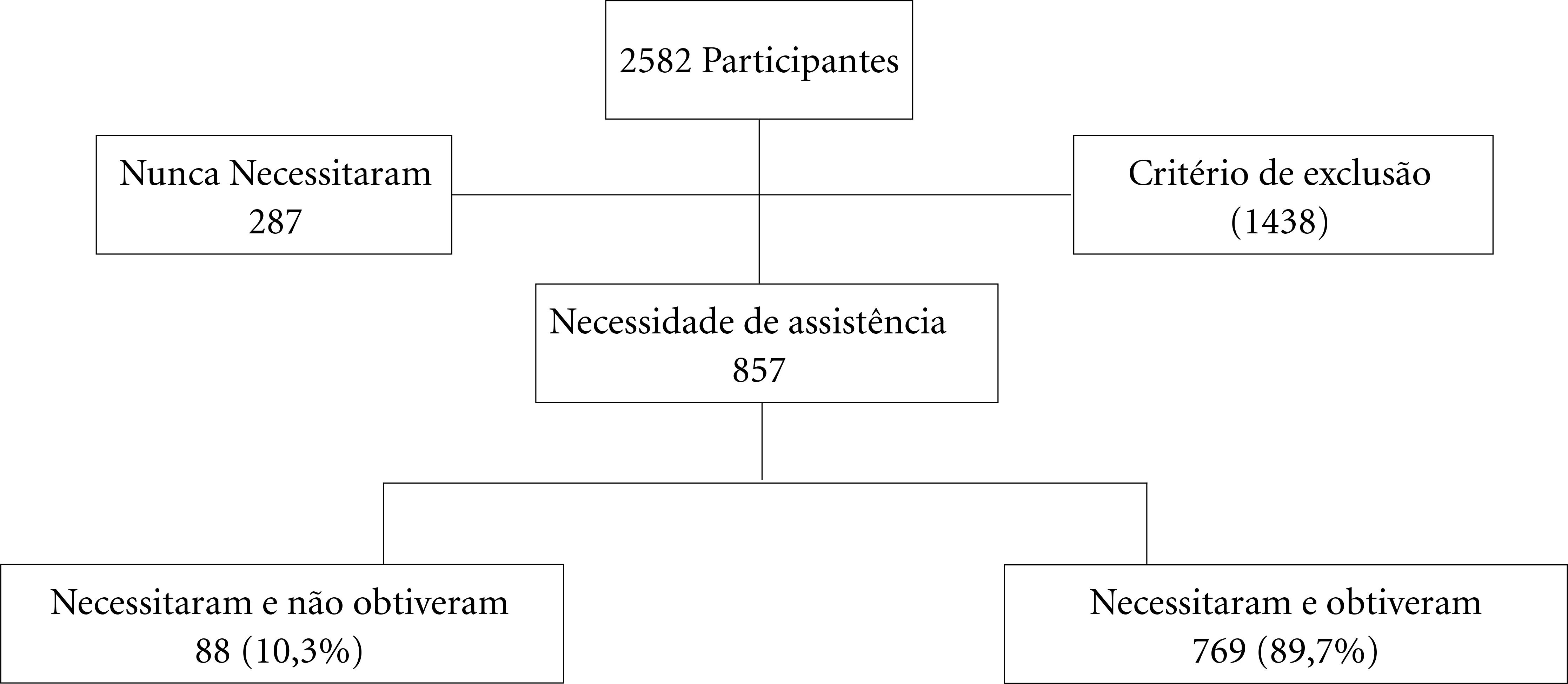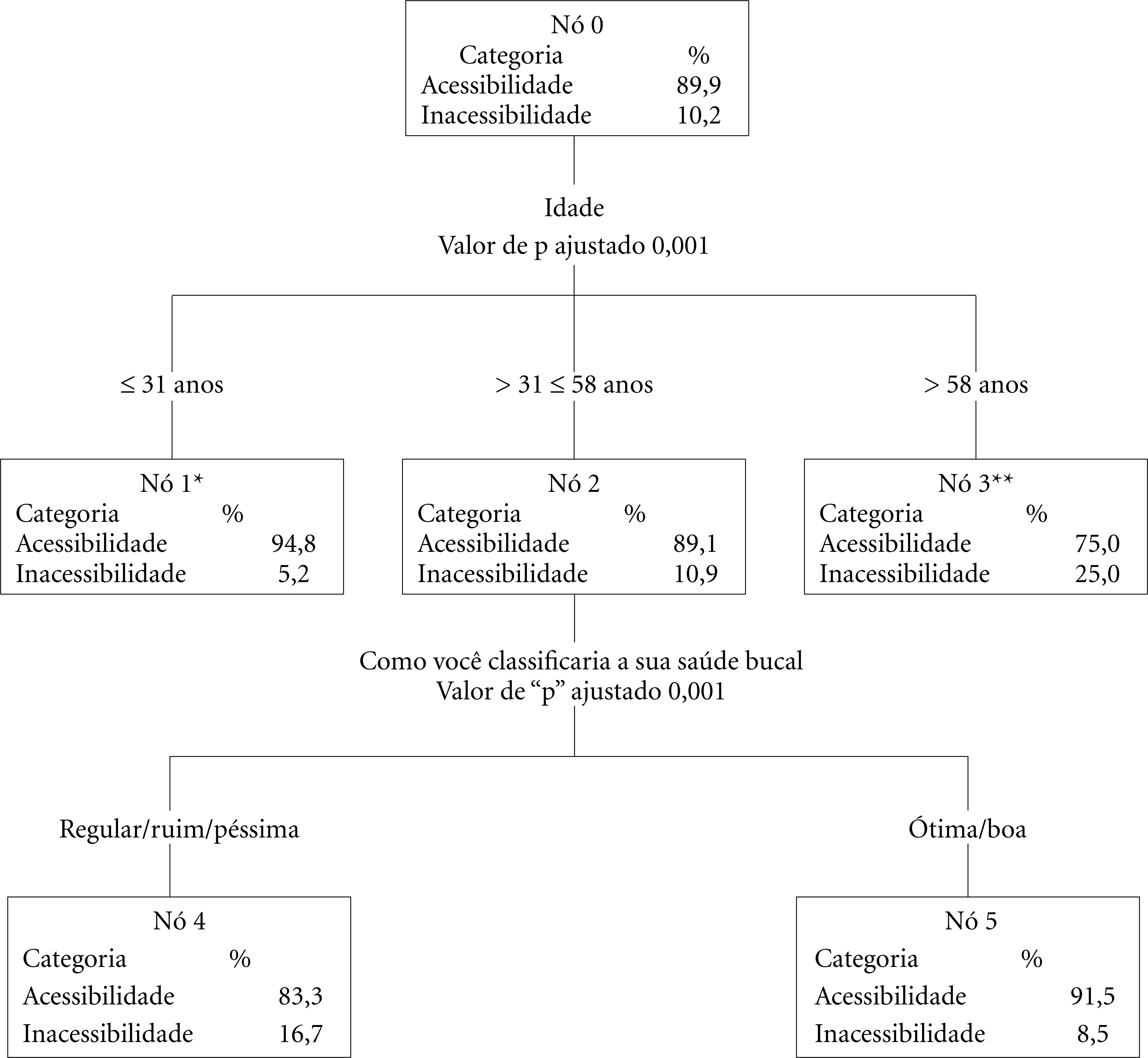Abstract
The scope of this study was to identify factors associated with lack of access to dental services. It involved a cross-sectional study and a probabilistic complex sample by conglomerates in two stages with 857 participants over 18 years of age in a large city. Multiple analyses by means of logistic and multivariate regression in decision trees were made. The lack of access to dental services was considered a dependent variable. It was identified that 10.3% did not have access. In the multiple and multivariate analyses an association with age was verified and in the logistic regression a greater possibility of lack of access was found for each year of increased age, among those with the lowest per capita income and those who ranked appearance of teeth and gums as “fair/poor/very poor.” The lack of access to dental services was greater among the most socially vulnerable. There is a pressing need to increase the allocation of public resources to promote health education and provide knowledge about how to access services when they are needed, focusing on dental care as a human right and ensuring that lack of access does not occur as users get older or among those with low income and also those dissatisfied with their oral appearance.
Access to health services; Evaluation of health services; Oral health; Dental health services


 * Nó 1: menor falta de acesso aos serviços odontológicos. ** Nó 3: maior falta de acesso aos serviços odontológicos
* Nó 1: menor falta de acesso aos serviços odontológicos. ** Nó 3: maior falta de acesso aos serviços odontológicos